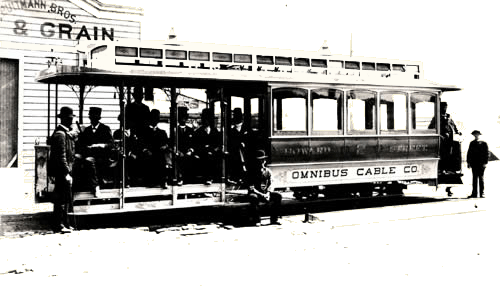|
||||||||||||||||||||||||||||||||||||||||
|
In the 1860s, Charlotte L. Brown was ejected from a San Francisco street car because, said a conductor, "colored persons are not allowed to ride." Brown later sued the Ominibus Railroad Company, a suit successful thanks largely to her court testimony. When the conductor first came to me, and refused to take my ticket, I told him I thought I had a right to ride, it was a public conveyance; I told him I had a long distance to go, but didn't tell him that I had come a long ways. I told him I would not get out. He then said, "Madam, you will have to get out," and at the same time took hold of me, by the left arm somewhere. He took hold of my arm. I made no resisitance as he had taken me by the arm. I knew it was no use to resist, and therefore I went out, and he kept hold of me until I was out of the car, holding on to me until I struck the walk.Charlotte Brown's law suit was settled in 1866. The court awarded her $500 in personal damages. |
|||||||||||||||||||||||||||||||||||||||
|
© 2000-2013 California Legacy Project, Santa Clara University English Department, Santa Clara University, 500 El Camino Real, Santa Clara, CA 95053.
For more information: Terry Beers, 408 554 4335, or . 



|
|

|








